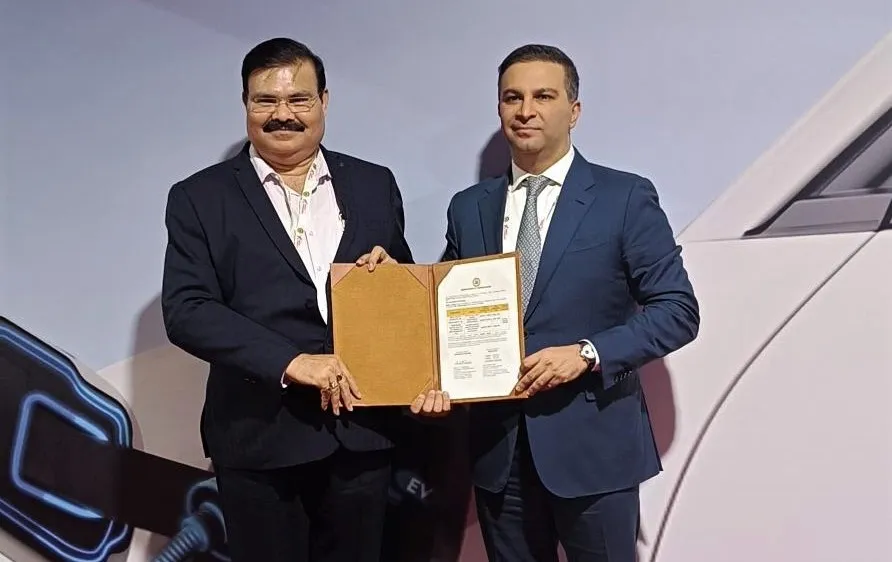Epsilon Group has signed a Memorandum of Understanding (MoU) with the Karnataka government to invest Rs 15,350 crore in establishing an advanced manufacturing and research facility focused on electric vehicle (EV) battery materials. The investment, spread over the next decade, aims to enhance India’s EV sector by producing high-performance battery components and advancing research in sustainable energy solutions.
Focus on Graphite Anode and LFP Cathode Materials
Epsilon Advanced Materials and Epsilon CAM Pvt. Ltd. will lead the initiative; the company will manufacture Graphite Anode and Lithium Iron Phosphate (LFP) Cathode materials. The initiative also involves Inspire Energy Research Center Pvt. Ltd. which will concentrate on R&D, testing, and training in battery technology. The investment outlay is of Rs 9,000 crore for a Graphite Anode plant, Rs 6,000 crore for an LFP Cathode plant, and Rs 350 crore for battery research and testing facilities.
Speaking on the occasion, Vikram Handa, Managing Director of Epsilon Group, said, “This association marks a significant milestone in India’s transition towards clean energy and the EV revolution. Our investment in Karnataka aligns with our vision of making India self-reliant in advanced battery materials and supporting the country’s EV ambitions. We are committed to creating jobs, fostering technology innovation, and promoting sustainable manufacturing to drive economic growth within the state and strengthen the vision of Viksit Bharat.”
Karnataka Government Support and Vision
All necessary approvals, incentives, and infrastructure support from the Karnataka government would be extended to the project. Such an investment is also part of the larger state vision to be a leader in the energy transition across India and be an important hub for the production of battery material. Epsilon Group’s initiative is expected to create lots of employment opportunities while reducing India’s dependence on imported battery materials and reinforcing its domestic supply chain.
The company will strive to bring 100% DVA in anode materials and 60% in cathode materials toward the objective of making India self-reliant in EV battery production. Another important focus area of the project is sustainable manufacturing practices to further support India in its clean energy transition.
Read Also : Karnataka’s Push for Electric Public Transport in Bengaluru

